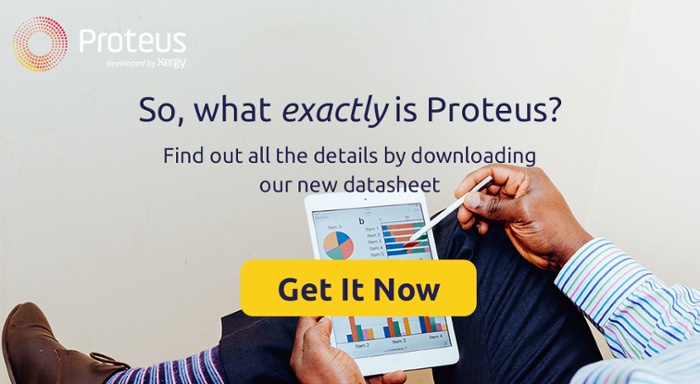In this blog, we look in detail at essential project management skills. Many companies using Proteus to improve their project management are engineering consultancies in sectors such as the energy sector. Therefore, we are focusing in particular on skills that are commonly used on complex, large capital investment projects such as those run by companies such as Wood or Technip.
Project management can be a fuzzy, collective label used to describe what is often a vast range of complex tasks. If you break it down to the most basic parameters, managing a project involves: planning tasks; assigning teams and resources; estimating timelines and costs; and then managing the execution of these tasks, teams, and resources against the timeline and budgets you estimated.
Easy right? Not always. Even managing relatively simple inputs and outputs can become a minefield, with missed deadlines and woefully overspent budgets being the norm.
For energy sector projects involving multiple layers of globally-strewn mini-projects, technically complicated integrated components, third-party agencies, hundreds of subcontractors, along with high-value assets and resources, project management is in fact an array of high-risk, difficult phases running from the initiation of a project, through feasibility planning and execution to project close.
Keeping an energy project well controlled and organised requires robust project management skills.
Obviously, the “what, who, when” of project management is the subject of intense study with certification provided by highly regarded institutions such as the project management institute (PMI). Whilst many project managers and project team members do have accreditation for project management, many learn the essential energy sector project management skills through hard work and experience on the job.
- Essential project management skill 1: Get a good understanding of key project management frameworks and methodologies.
- Essential project management skill 2: Guarantee accurate cost estimation.
- Essential project management skill 3: Manage your utilization rates with accurate project tracking.
- Essential project management skill 4: Learn how to use project management software.
- About Xergy and Proteus
- How to get Proteus

Here is our (non-conclusive) list of just some of the skills needed to meet energy sector business requirements:
Essential project management skill 1: Get a good understanding of key project management frameworks and methodologies.
Many of these are well-used at all levels and most energy companies will use a stage-gated project management methodology. Some of the most common principles to become conversant with are Agile, Waterfall, Lean, and Scrum. Often these are industry specific. Check PMI for more information to become familiar with these standard methodologies and process groups. In the energy sector, all projects are divided into stages or work packages. Each work package contains a logical sequence of activities, milestones, and deliverables. Put together, these stages achieve the project objectives ensuring they are on time and on budget.

Essential project management skill 2: Guarantee accurate cost estimation.
Getting your budget planning right is critical to the success of any project as this phase becomes the backbone of the entire project management cycle. This project planning phase is where you will outline the stages, work packages, schedules, teams, and resources. Estimating costs and getting them right at this point in the project management life cycle impacts your profit margins and in turn project success or failure.
Cost accuracy is often tied to the way in which you and your teams share data and knowledge: avoid silos and disconnected databases.
Using integrated project management software for cost estimation, where accuracy is hard-wired, is crucial to avoiding errors.
Essential project management skill 3: Manage your utilization rates with accurate project tracking.
Energy projects are all about delivering work on time and on budget. When time overruns, your budgets will quickly spiral out of control. This is true for your teams or the use of any asset: if your utilization rates are too high, your costs will be too high. Keeping control of time management to meet deadlines and get work package deliverables out on time will keep your project on schedule. The only way to stay in control of time management is to ensure you have accurate time and task-tracking software in place to provide you with real-time project data at all stages.
Essential project management skill 4: Learn how to use project management software.
There are many generic software options out there, and you will need to learn what works best for your company’s needs. Determine what you and your team need to manage the various databases and workflows you need across your projects. Make sure you are able to get instant overviews of key project data in automated dashboards and reports.
If you select a simple-to-use, cloud-based software that is configured to meet your unique business requirements will increase adoption across your team.
Get your software provider to take you and your team through a full customer success program to make sure you get the most out of the tool. If you have to pay extra for this service, it may be the solution is not fit for your business: your project success is dependent on this technology!
In addition to these skills, there are of course many soft skills needed for successful project management in the energy industry, from good communication and team management skills to strong organisational and interpersonal skills.

About Xergy and Proteus
Xergy Group’s Proteus work management solution is designed to work with your existing systems and to scale and evolve as your business evolves. It was created by energy sector professionals, for the diversified energy sector, and delivers an end-to-end project management software platform compliant with ISO audit requirements and common project management frameworks.
How to get Proteus
Proteus’ work management software is a cloud-based system designed for businesses of all sizes to handle projects of unlimited complexity. Each Proteus feature is aimed at making bottom-line improvements by improving utilisation, streamlining workflows, providing quick and efficient access to resources, and reducing overheads. One of the unique advantages of Proteus is that we offer a free onboarding consultation service to ensure your company account is set up according to your company’s needs.
We recommend getting setup on a free trial. Proteus operates under a software-as-a-service (SaaS) model. We offer Enterprise packages and flexible pricing solutions: contact our team to learn more.
We designed Proteus to be simple, and that means you can get up and running on Proteus without an IT team or support from a programmer. You will want to spend a bit of time configuring the admin console so that you have everything set up to suit your company structure, but it’s very intuitive and you don’t need a PhD in IT. However, we want you to get the best out of what is a brilliantly powerful tool, so don’t hesitate to ask for our support. We have a team of product experts who are ready to help you with the configuration process, so get in touch today.



